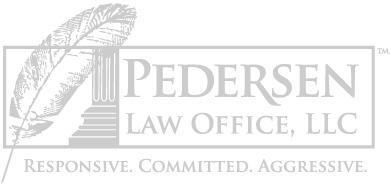Common Types of Estate Planning Trusts
Dec 20, 2019

It is important to have a plan for your estate after your death. You have worked hard all your life and want to ensure that your assets are passed along to your loved ones according to your wishes in the most beneficial way possible. Trusts are often used as a part of an estate plan to achieve these goals.
REVOCABLE TRUSTS
A revocable trust is the idea of you giving all your property to the trust, so that when you pass away you do not own anything. While you are alive you have sole control over the asset owned by the trust and can do anything you would like with the assets, such as use them, change them, sell them, gift them, or add to them. When you pass away, someone you have chosen oversees the trust and must follow the instructions you created for distribution of the trust assets.
The most common reasons to use a revocable trust are to:
· avoid the probate system
· avoid death taxes
· avoid estate assets being public record
· avoid interruption in management of your family business
· avoid mixed family problems
· avoid probating in two states
· avoid beneficiaries losing their inheritance foolishly
A revocable trust does not protect your assets from Medicaid asset recovery after your death and does not hide your assets when you apply for Medicaid. Also, if you do not transfer your assets into your trust, the trust is mostly useless. You must make sure that all assets acquired or sold are done through the trust.
SPECIAL NEEDS TRUST
A special needs trust is usually done as an extra provision within a revocable trust and is not a completely separate trust. If a person receives government assistance, such as Supplemental Security Income or Medicare, due to a disability, they can lose that assistance if they receive a large inheritance. A Special Needs Trust is used to give that person the maximum they are allowed to receive per month without causing them to lose their assistance. Also, the trust can buy them assets that do not count towards their asset limit.
IRREVOCABLE TRUSTS
When you put your assets into an irrevocable trust you are forever surrendering ownership of the asset, other than regular maintenance and the right to use it for the rest of your life. Typically, these types of trusts can’t be change or revoked. The benefit to an irrevocable trust is that it does hide your assets from Medicaid. However, it is considered a large gift, so it can have a negative effect on your financial and health care situation if it is done at the wrong time. Usually these trusts are only used for real estate that the owner plans on never leaving unless medically necessary. Also, an irrevocable trust can cause problems if the real estate has a mortgage on it or is under a government program. Many people use an irrevocable trust for their real estate and use a revocable trust for the rest of their property.
FREE CONSULTS
Estate Planning now can save you and your loved ones a significant amount of money and avoid problems in the future. Remember, laws change and there is no one right answer for everyone. Pedersen Law Office, LLC offers free consults in all our areas of practice and will meet with you personally to discuss your specific circumstances and see what options are right for you. Our law office serves the communities of Appleton, Neenah, Menasha, Oshkosh, Green Bay and their surrounding areas.


